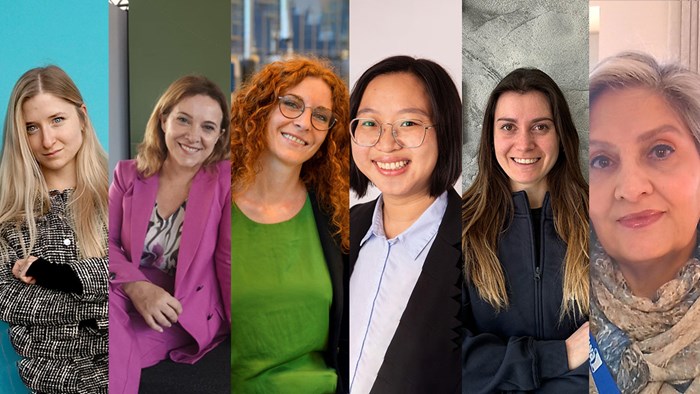Inspiring inclusion at Kiwa on International Women’s Day
On International Women’s Day, we deem it fundamental to reflect on gender equality in the workplace. We’ve seen a movement towards greater inclusion underway in corporate cultures worldwide, and organizations increasingly recognize the value of diversity, equity, and inclusion (DEI). As such, we believe in the importance of creating environments where all individuals are empowered to contribute their unique perspectives and talents, regardless of their many differences.
In Celebration of International Women’s Day, we recently interviewed six of our female employees to find out how they are experiencing gender equality and inclusion in their careers and at Kiwa.
Breaking down the glass ceiling
Among others of the UN’s Sustainable Development Goals, Kiwa is committed to Goal 5: to achieve gender equality and empower all women and girls by eliminating discrimination. “Every year, all the countries where Kiwa operates report the fulfillment of this objective. Every year, this indicator improves,” says Rosa Valenzuela Juan, Director of Research Development and Innovation, at Kiwa Spain.
Heading up a department that is constantly exploring the market's needs, Rosa is building a technical team with highly competent specialists to develop high-value projects for clients. She considers herself one of the women who is evidence that the glass ceiling, often experienced by professional women, is changing at Kiwa. “Kiwa develops equal opportunity policies for employment, leadership, and decision-making positions at all levels. Both sexes have the same opportunities. In my case, I am surrounded by intelligent women and men who hold technical and management leadership. They are great professionals from whom I learn every single day.”
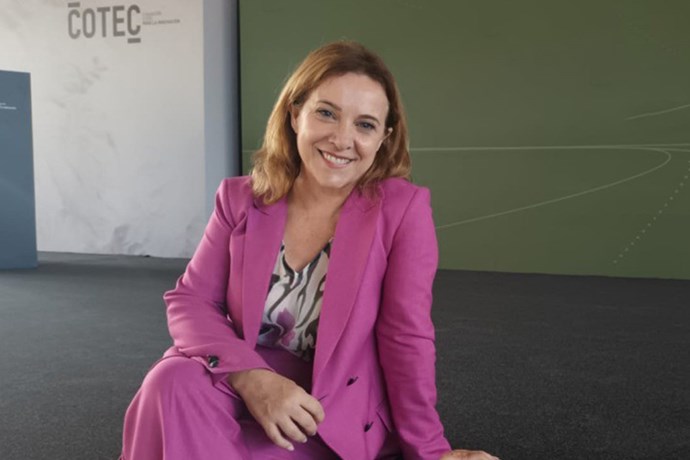
Rosa Valenzuela Juan, Director of Research Development and Innovation, Spain
Rosa has encountered many obstacles throughout her career because of her gender – but how she rose to a senior position can be credited to what she calls “the first principle of survival: move forward.” It was a principle that meant operating outside her comfort zone, but it has brought her to this point in her career. “Being at Kiwa brings me closer to my goals as a researcher, professional, and woman. Working on equal terms with male colleagues gives me the wings and security that, up to now, I have rarely been able to feel,” she says. “Everything I do aligns with a commitment to gender equality. Diversity, in all its expression, and equal opportunities are implicit in my DNA.”
What is it like to work in a male-dominated industry?
Greta Stefani, Test Engineer based in Italy, has also experienced a gender-balanced culture at Kiwa. “I am a lab technician and am involved in plastics testing. The field in which I graduated, but more importantly in which I work, is purely male-dominated,” she says. “Some of my work involves analytical testing, but most of it is testing where physical strength is also required. My colleagues have always supported and helped me, believing in me and my abilities. They never made me feel inferior and never emphasized my limitations, but rather always highlighted my strengths and the knowledge I have of the field in which I have been working for seven years.”
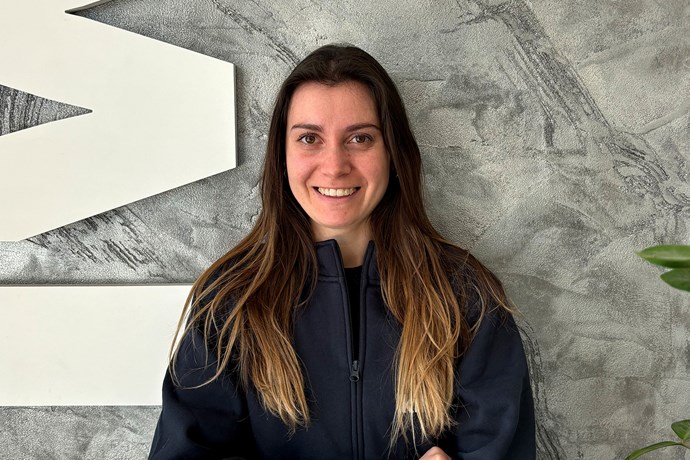
Greta Stefani ,Test Engineer, Italy
Greta acknowledges that some people doubted her success at some point in her career because of her youth, gender, and line of work. “I always had to prove more, try harder, and be very tolerant,” she says. But ultimately, with the willpower and support of the people working with her, she has achieved her goals. “I was hired in 2019 to set up a plastics laboratory in Italy. Kiwa allowed me to start this new project, placed their confidence in me, and gave me the opportunity to express my potential to the fullest.”
As a woman using tools and machinery typically used by men, Greta hopes other women will be inspired and motivated to do the same. “Limits, such as physical strength, are only in the head of those who see them as such. But in reality, they are merely small obstacles. They can be overcome, sometimes by improving oneself, and sometimes with the help of the right people who, like you, see not limits, but potential challenges.”
Leading by example with a proactive approach
Nadiya Eichberg finds that being in a leadership role allows her to help foster integration. Nadiya is Head of Battery Testing and Environmental Simulation in Germany, where she models fairness and respect for everyone, regardless of gender. “I make sure everyone has the same chances to grow and succeed in their careers. By supporting diversity and leading by example, I help make Kiwa a place where both women and men can do well. I also think my work helps close the gender gap in my industry by showing that women can lead just as well as men,” she says.
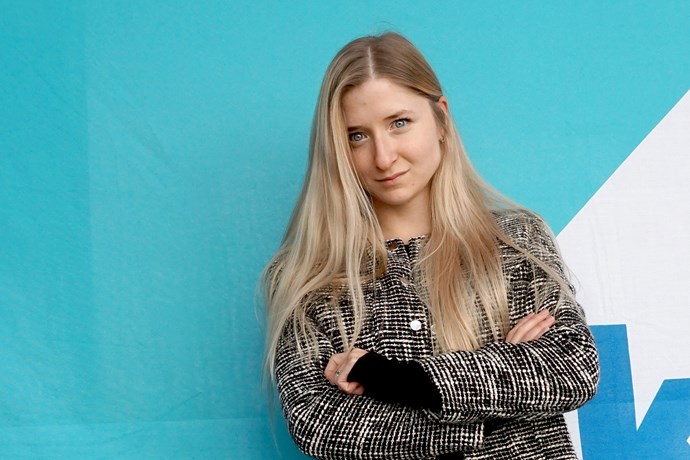
Nadiya Eichberg , Head of Battery Testing and Environmental Simulation ,Germany
Like many other women, Nadiya has had to overcome some obstacles in her career. “As a woman in my field, I have faced stereotyping. I have encountered people who made sexist comments and held opinions shaped by their biases. But I have worked hard and kept pushing forward, focused on my goals, and improved continuously,” she says. “I have also been fortunate at Kiwa to have managers who have always supported me and provided valuable feedback on my work. Their advocacy has helped me advance in my career within the organization.”
Nadiya feels that sexism is a challenge in many workplaces, but Kiwa's culture creates an environment where all employees are valued and respected. However, she warns that it is important to remain proactive in addressing any subtle biases or barriers across the industry. “We need to keep working on some important things,” she says. “This includes making rules that treat everyone equally and taking steps towards delimiting personnel who may have prejudices towards others. I am also very much in favor of flexible work arrangements, transparent promotion processes, and diversity training.”
Take every opportunity to grow
With the same proactive mindset, Ana Pina Teixeira based in Portugal, Would add to Nadiya’s list of essential initiatives. “It is important that we continue to measure progress and accountability, support work-life balance, combat unconscious bias, and promote diversity in leadership,” she says.
As Business Sector Lead for Medical Devices, Ana’s role is to give strategic vision and effective management in expanding Kiwa's presence in the medical devices sector. She only joined Kiwa a few months ago but is already benefiting from the support of her line manager and co-workers.
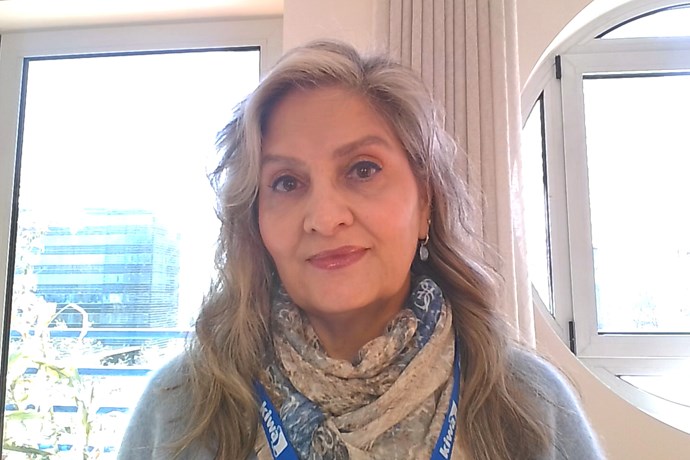
Ana Pina Teixeira, Business Sector Lead for Medical Devices , Portugal
Ana believes in seeking opportunities for growth and professional development. She built her career by increasing her knowledge and expertise in different aspects of the TIC industry and improving her soft skills to better handle interactions with colleagues and peers. “If I experienced difficulties and obstacles in my career due to gender equality, I made sure not to pay attention,” she says. “I worked long and hard to develop a career while also focusing on my two priorities: my daughters. I was very lucky as I always had family support to help me balance work and family life.”
Helping to break down barriers and create more opportunities for women in leadership roles is one of Ana’s goals. “I hope I can become a mentor and advocate for other women in the industry. I want them to know their worth,” she says. “I have witnessed progress in the medical sector, with more and more women qualifying as clinicians and engineers. I want to tell them to stay engaged and be persistent even in the face of setbacks, and to never hesitate to speak up.”
How mentorship and team diversity lead to good outcomes
Ke Li is a Project Engineer in the Battery Testing department based in Germany, focusing on product testing and quality assurance, ensuring safety and compliance across various projects. She lists mentorship and team diversity as key factors in workplace success.
“My path to Kiwa involved overcoming gender-related challenges through perseverance and seeking mentorship, leading to my growth and success in a competitive field,” says Ke. “Since I joined Kiwa, I have been fortunate again to benefit from significant mentorship and support, particularly through comprehensive training programs.”

Ke Li, Project Engineer in the Battery Testing department, Germany
Some of these programs enhanced her technical skills and offered valuable insights into industry standards and practices. “Others, which focus on career growth and work-life balance, are especially good at supporting women in their careers,” she says. “I hope to see more initiatives that further enhance work-life balance and professional development, ensuring that all employees, regardless of gender, have equal opportunities to succeed.”
The concept of team diversity might be taken for granted in a global organization that attracts employees from different backgrounds and who have varied skill sets. But Ke has been acutely aware that this dynamic is important, explaining it like this: “My experience here has shown me the value of diverse teams in achieving comprehensive and reliable outcomes. Not only does it lead to better results, but this diversity also reflects Kiwa's broader values of fairness and equal opportunity in the workplace.”
Promoting advancement across the industry
Giulia Botta, International Business Development Manager Hydrogen based in the Netherlands, adds to the conversation. “In my role, I lead our global strategy, fostering collaboration across diverse teams. My experience as a woman and expat fuels my passion for inclusion. I believe that varied perspectives drive innovation, and I am committed to promoting further progress towards an equitable leadership landscape at Kiwa,” she says.
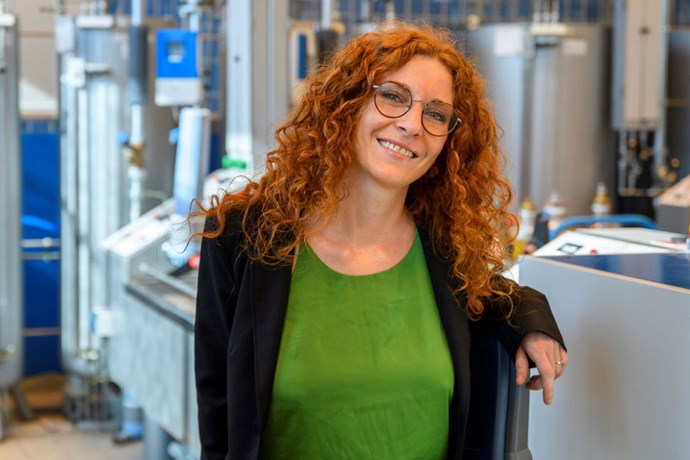
Giulia Botta, International Business Development Manager Hydrogen, Netherlands
As a mechanical engineer, Giulia, like many other women in her industry, has had to navigate a male-dominated field. Early on, she found that male colleagues assumed she needed technical concepts explained to her, even in areas where she had expertise. How did she manage this dynamic? “I confidently demonstrated my knowledge and redirected conversations to my areas of strength,” she says, “and I focused on building strong relationships and delivering results, earning respect while fostering collaboration.”
Industry-wide, Giulia has seen encouraging progress in the area of gender equality. “Companies are setting targets for female board representation. Organizations like Women in TIC and Women in Green Hydrogen Network promote career opportunities and mentorship. Within Kiwa, observing the commitment to diversity and inclusion through our public communication channels signals an important positive shift in company culture.”
However, Giulia feels that more can still be done. Business plans should have clear targets for female leadership representation. To empower female talent, Kiwa could pair high-potential female employees with senior leaders for mentorship. Implementing generous and inclusive parental leave policies could significantly contribute to achieving a more equitable workplace.
The power of mutual motivation
Giulia would advise female colleagues: “Believe in your abilities and challenge assumptions with confidence. Inspire each other, and celebrate your and others’ achievements.” Ana agrees: “Remember to support and uplift other women in their careers and in their achievements. Be a role model.” Rosa’s advice is all-embracing: “Our greatest empowerment is the collective strength between us, the alliances with each other and also with men. Women are half of the world's population and half of its potential, who, together with many men who are convinced of social equality, represent the majority to develop a fairer world for all.”
Ke encourages others to speak up about any unfairness. "It's important to communicate openly and assertively about your experiences,” she says. Greta’s advice is for women not to believe everything they are told but to trust their abilities. And Nadiya sums it all up beautifully: “My advice to other women in the workplace is to have confidence in yourself, find supportive mentors, and speak up for what you deserve.”



